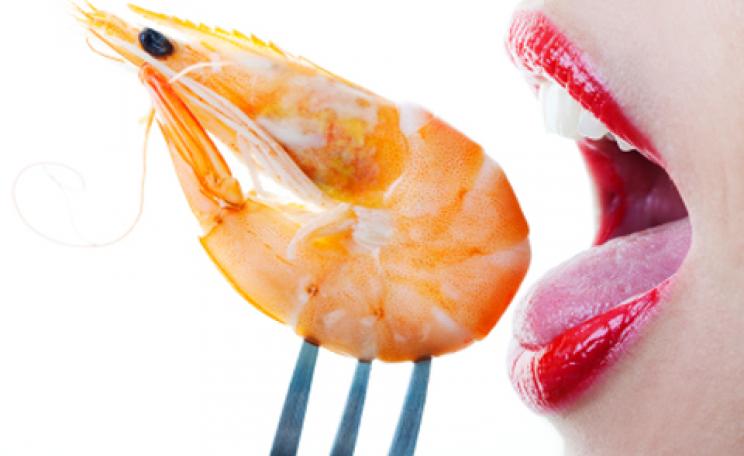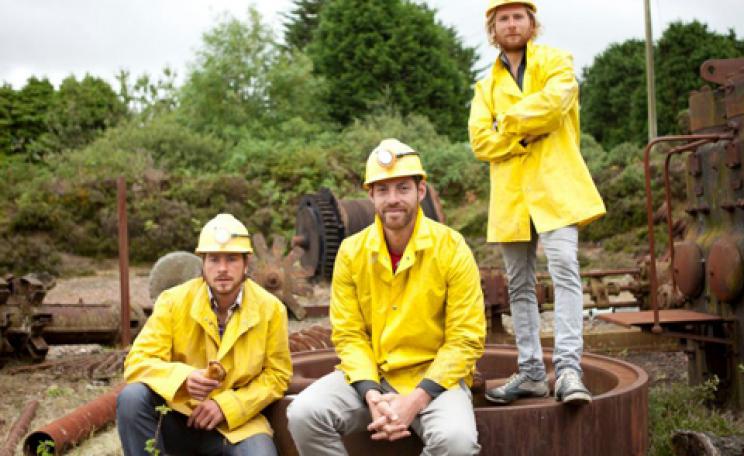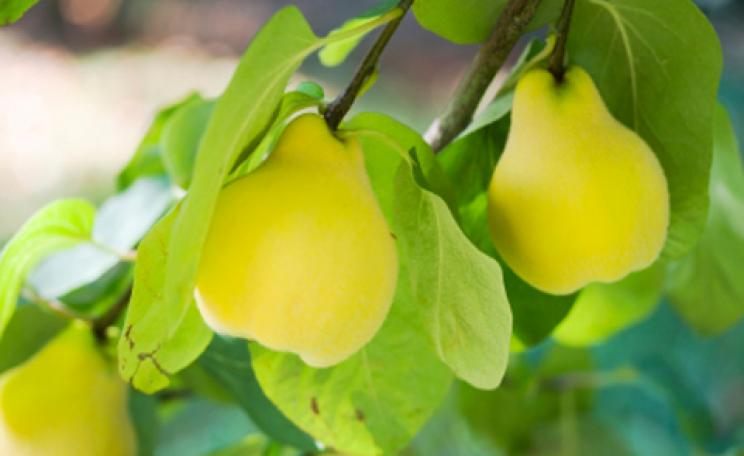Fish is big news. The cause célèbre of 2011 saw everyone from Prince Charles to Hugh Fearnley-Whittingstall campaigning on behalf of Britain’s depleted fish stocks. As a result, the issue of discards – once practically unknown – made headlines and is under consideration in the European Parliament. In the UK, Early Day Motions were filed in the House of Commons while a string of celebrity chefs appeared on TV to show us how to choose and cook the oddballs of the marine world – the plentiful likes of gurnard, catfish and pouting. Even the supermarkets got in on the act, with many pledging to avoid purse seine caught tuna and promised to offer a wider variety of fish to help take pressure off cod stocks. But amidst the hue and cry, and the sound of the public swinging firmly behind Britain’s marine life, one part of the story was missed: the human one.
Among conservationists, fishing is a dirty word with fishermen and the fishing industry pilloried for the use of beam trawlers and purse seine nets. The people who work in the industry have been caricatured as uncaring, money-hungry flat-earthers unwilling to face facts. Nothing, says Monty Halls, could further from the truth. ‘I will defend small boat fishermen to my dying day,' he emphasises. 'All right you’ve got the odd one who’s a bit of a renegade and should be drummed out of business. The best way to put it is there were eight boats on that beach in Cadgwith so I spoke to Nige [a fisherman featured in The Fisherman's Apprentice] about it and said: “well how do you know that one of them isn’t fishing illegally, how do you know that they’re not taking the undersized stuff?” And he told me that [fishermen] don’t need the Navy to board them, don’t need Fisheries Protection Vessels to come and have a go. If one of them was catching illegal fish, the other ones would beat the crap out of him and would drive him off that beach because it’s their future. Although having said that they did wipe out the pilchard shoals but that was back in the midst of time, so that’s another story.’
 Halls’ own story is an interesting one. With a CV that includes stints as a Royal Marine, an explorer and a degree in marine biology, he’s an unlikely TV star and an even more unlikely fisherman’s friend. Best known for the BBC series, Monty Halls’ Great Escape and his work for Animal Planet, his latest TV opus, The Fisherman’s Apprentice is something of a departure. Rather than filming wildlife, The Fisherman’s Apprentice required him to spend a year catching it – all in the company of men traditionally hostile to the idea of conservation. So why on earth did he do it? ‘I was terrified,’ admits Halls. ‘These are hard men as well, hard tough strong blokes. I had a few discussions over a beer but I never ever sensed any hostility or aggression or unreasonableness. I was treated with hospitality and warmth and genuine curiosity. They looked after me and if the fishermen hadn’t looked after me when I was out there, I’d probably be in the Channel by now because I didn’t know what I was doing.’
Halls’ own story is an interesting one. With a CV that includes stints as a Royal Marine, an explorer and a degree in marine biology, he’s an unlikely TV star and an even more unlikely fisherman’s friend. Best known for the BBC series, Monty Halls’ Great Escape and his work for Animal Planet, his latest TV opus, The Fisherman’s Apprentice is something of a departure. Rather than filming wildlife, The Fisherman’s Apprentice required him to spend a year catching it – all in the company of men traditionally hostile to the idea of conservation. So why on earth did he do it? ‘I was terrified,’ admits Halls. ‘These are hard men as well, hard tough strong blokes. I had a few discussions over a beer but I never ever sensed any hostility or aggression or unreasonableness. I was treated with hospitality and warmth and genuine curiosity. They looked after me and if the fishermen hadn’t looked after me when I was out there, I’d probably be in the Channel by now because I didn’t know what I was doing.’
The life of a fisherman, as Halls discovered, is no easy one. Early starts, backbreaking work, high seas and little money have made the fishing industry one that is finding it hard to attract new recruits. ‘The average age of a fisherman is 49,’ says Halls, sadly. ‘There’s no one coming through and the reason is that it’s Dickensian toil. People do it because their dads were fishermen, it’s tradition and it’s a way of life. I think we will always have a fishing fleet but it’s going to be much reduced. Especially on the smaller boats because of the problems with the common fisheries policy, the quotas and the sometimes utterly baffling, contradictory legislation that comes in.’ Legislation, in particular, has become a serious problem and, adds Halls, it’s proving a massive hindrance to small boat owners. ‘In 100 years time, our sustainable fishing fleet will have died out because of the way [things are] going - another 30, 40 years and the small boats, they’re gone. When it has gone, a very, very clever committee will be put together by the Government to try and create the ultimate sustainable way to fish. They’ll come up with small boats, using a single crewman, using static nets and pots, fishing on a daily basis supporting local communities who buy direct from that boat and then they’ll look back and think “oh bugger” because that’s exactly what we’ve got at the moment.’
 The Fisherman’s Apprentice points to an interesting paradox at the heart of the debate on fish. On one hand, concerns about the health of our seas are at fever pitch, but on the other, no one seems prepared to stop eating it. Despite the warnings, we continue to eat cod and choose tiger prawns raised in mangrove-destroying farms in the Far East. Making it worse is public demand for ever-cheaper food, which means that for the fishing industry, the only way to make a living is by getting bigger boats. Just as demand for cheap chicken has led to factory farms, demand for cheap fish has led to super trawlers and unsustainable fishing practices.
The Fisherman’s Apprentice points to an interesting paradox at the heart of the debate on fish. On one hand, concerns about the health of our seas are at fever pitch, but on the other, no one seems prepared to stop eating it. Despite the warnings, we continue to eat cod and choose tiger prawns raised in mangrove-destroying farms in the Far East. Making it worse is public demand for ever-cheaper food, which means that for the fishing industry, the only way to make a living is by getting bigger boats. Just as demand for cheap chicken has led to factory farms, demand for cheap fish has led to super trawlers and unsustainable fishing practices.
One interesting statistic cited by Halls is that although 80 per cent of the British fleet is made up of small boats, they only bring in eight per cent of the total catch. Not surprisingly, for the small boat owners who do care about the fish they catch, price wars and the rise of the mega trawler have been nothing short of disastrous. ‘If we lose our fleet, which we are at the moment, then of course we lose the communities that surround them, we lose the heritage and the culture - we’re an island race so we lose a vital part of our identity,’ says Halls. ‘We need to change our habits, our buying habits. That’s the other side of the story that we tend to ignore. We focus on how our fishermen must change: they must change the way they use their gear, they must adhere to the marine conservation zones that we hope are going to be set up in 2013 but I think we forget that we need to change as well and buy in a more sustainable way.’
But there’s a problem with that: sustainable means paying more for what we eat. That, argues Halls, is at the heart of the issue. ‘There’s a problem at the moment with ‘super crabbers’ that come in with thousands of pots. Because of that, the market has been flooded with crab so the price has gone down. Now, the small boats have to buy lots more pots to try and catch more crab to try and make a profit and what that means is that the price goes down even further; that’s why crab is really cheap. The price of a lobster hasn’t changed in 20 years and we don’t know what the environmental impact of all these thousands of pots is going to be.’ Halls’ solution, along with marine conservation zones and limiting legislation, is to get us all to pay more for sustainably fished crab from small boats. ‘In particular we should pay more for the fish that comes from the small boats,’ he argues. ‘I appreciate that a lot of people say this is a really middle class argument. You have this conversation with a single mum who’s not working, has three kids, and she’ll say: “I’m just going to buy the cheapest fish around”. There’s nothing wrong with that. But for those of us who can choose, we should reward sustainable fishing and that means rewarding the fisherman with the small boats and giving it that premium because of the way was caught.’
 Halls talks with the passion of a convert and its clear that he’s genuinely moved by the plight of Britain’s small fishermen. But despite his level-headed analysis and thoughtful arguments, he has, he says, come under attack, both from conservationists and from the fishing industry. ‘I’ve had two very strong reactions,’ smiles Halls. ‘I’ve had all sort of threats from beam trawlers but the most poisonous stuff has come from the extreme end of the conservation lobby. But they’re the same people, quite frankly, who burn down a farmer’s barn because he said “yeah the government [culling programme] on badgers, let’s see if it works, let’s see if it’s a good idea.” As far I’m concerned, just forget about them because they’re just fanatics - you’re not going to get any sense out of them, you’re just going to get insults and vitriol. This lot hate all conservationists, that lot hate all fishermen and as long as the future is left in their hands we’re in a world of trouble.’ What needs to happen instead, he adds, is to get the moderate majority talking. ‘Most conservationists want to engage with and understand the fishing fleet,’ says Halls, ‘and having worked with the fishing fleet, I know most fishermen want to speak to the conservationists and scientists and say “right well how do we move forward and make it sustainable”. That dialogue is just crucial.’ And with both fishermen and fish stocks facing an uncertain future, finding solutions that work for both is more important than ever.
Halls talks with the passion of a convert and its clear that he’s genuinely moved by the plight of Britain’s small fishermen. But despite his level-headed analysis and thoughtful arguments, he has, he says, come under attack, both from conservationists and from the fishing industry. ‘I’ve had two very strong reactions,’ smiles Halls. ‘I’ve had all sort of threats from beam trawlers but the most poisonous stuff has come from the extreme end of the conservation lobby. But they’re the same people, quite frankly, who burn down a farmer’s barn because he said “yeah the government [culling programme] on badgers, let’s see if it works, let’s see if it’s a good idea.” As far I’m concerned, just forget about them because they’re just fanatics - you’re not going to get any sense out of them, you’re just going to get insults and vitriol. This lot hate all conservationists, that lot hate all fishermen and as long as the future is left in their hands we’re in a world of trouble.’ What needs to happen instead, he adds, is to get the moderate majority talking. ‘Most conservationists want to engage with and understand the fishing fleet,’ says Halls, ‘and having worked with the fishing fleet, I know most fishermen want to speak to the conservationists and scientists and say “right well how do we move forward and make it sustainable”. That dialogue is just crucial.’ And with both fishermen and fish stocks facing an uncertain future, finding solutions that work for both is more important than ever.
Monty Halls’ new book, The Fisherman’s Apprentice (£20, AA Publishing), is out now
| READ MORE... | |
 |
GREEN LIVING Food of love: why 'aphrodisiac' oysters could be the sustainable alternative to meat Oysters need a thriving natural eco-system and ultra clean water to survive. And as Matilda Lee discovered on a visit to Loch Fyne Oysters, they even find their own food. So are oysters the green choice? |
 |
GREEN LIVING See weed and eat it: a foraging break on the Scilly Isles Seaweed, carrot flower and locally caught fish were all on the menu during Kate Eshelby’s gastronomic tour of the Scillies |
 |
GREEN LIVING Starved to death: are high protein diets killing the planet? From the Atkins to the Dukan, protein-based diets are big news in the celebrity world. But what effect is our love affair with meat, fish and cheese having on the environment? |
 |
HOW TO MAKE A DIFFERENCE Project Ocean: Selfridges campaign to save fish, fashionably Selfridges Creative Director Alannah Weston has raised the bar for ethical commitments in high-end retail |
 |
GREEN LIVING Top 10… ways to eat fish sustainably Support Hugh Fearnley-Whittingstall's Big Fish Fight by making sure that the fish you eat is ethically caught and sourced from sustainable fisheries |








